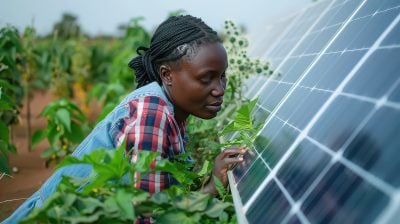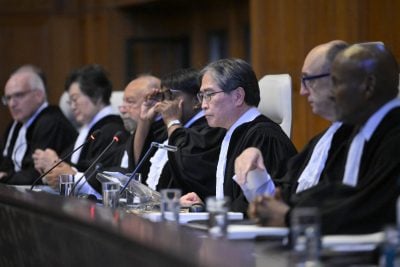Four out of the five North African countries have been largely overlooked as hubs for investment into the rest of Africa. The Libyan economy has virtually imploded and Egypt is more preoccupied with looking east than south, while Algeria trades very little with sub-Saharan Africa.
Figures from Algiers reveal that the country only exported $42m to sub-Saharan Africa in the first nine months of 2016. Tunisia is just starting to consider its African options but Morocco is the big exception, banking on growth across the entire continent to help fuel its own development. Rabat calculates that 85% of Morocco’s foreign direct investment goes to sub-Saharan Africa, with Senegal, Côte d’Ivoire and Gabon the top three destinations.
If anything, Morocco is likely to become more prominent as an entrepôt for African investment over the next few years. Tanger Med, one of the African continent’s most important container ports, already serves as a transhipment port for trade between Europe, Asia and North America but is likely to become increasingly valued as a dropping off point for cargo bound to and from West Africa’s modernising ports over the next few years.
The most important area of Moroccan investment at present is the banking sector. Students of the African Business Top 100 Banks report will be well aware of the heavy investment made in West Africa by Moroccan banks, particularly Attijariwafa Bank and Banque Centrale Populaire.
The latter owns Banque Atlantique, which has operations across West Africa, while Attijariwafa now has 3,376 branches in 23 countries, including Cameroon, Congo Brazzaville, Gabon, Côte d’Ivoire, Mali, Mauritania, Senegal and Tunisia.
These activities have helped to propel both banks up our rankings and Egypt’s similarly sized banking sector could make similar headway through the development of banking operations in the rest of the continent.
Morocco’s financial services industry has the opportunity to expand in a different direction following the passage of new legislation this year that allows the granting of Islamic banking licences. Middle Eastern companies, such as Emirates Islamic Bank and Abu Dhabi Islamic Bank, are keen to invest in Moroccan Islamic banking, both for the attractions of the domestic market and as a springboard for expansion into the rest of the continent.
Morocco also acts as a model for renewable energy development in Africa. It is on course to achieve 2GW of wind power generating capacity by 2020 and is building the world’s biggest concentrated solar power (CSP) plant in Ouarzazate, via the 500MW Noor scheme.
Morocco and South Africa have been the two biggest investors in the CSP sector in the world over the past two years and appear to be driving each other on in competition to develop CSP technology that can be exported to many different markets. Companies from the two countries are competing for influence in a growing number of sectors.
A consultant familiar with Moroccan affairs but who did not wish to be named said: “Morocco has banked its economic strategy on trade with the European Union but the EU is stagnating. African growth prospects over the next ten or 20 years are much bigger and so the government wants to add a second string to its bow: looking north to Europe and south to Africa at the same time. It’s a no brainer.”

Morocco’s charm offensive
King Mohammed VI is on a charm offensive across the continent, including Ethiopia, Nigeria and Zambia, to drum up support for a bid to rejoin the African Union (AU). Some of these visits were accompanied by investment announcements. During meetings in Addis Ababa in November, Morocco’s OCP Group announced that it will invest $2.4bn in a fertiliser plant in Dire Dawa in eastern Ethiopia to make the country self-sufficient in phosphates by 2025.
“This is our largest investment outside Morocco. Our goal is to reduce Ethiopia’s dependence on fertiliser imports,” said OCP Group CEO Mostafa Terrab. Cooperation deals on renewables, agriculture and air transport were also signed during the visit.
During the king’s visit to the country, BCP signed a cooperation agreement with Nigeria’s Heirs Holdings. Heirs chairman Tony Elumelu said: “This is an opportunity for the private sectors of both countries to collaborate and leverage on opportunities for sustainable economic growth.
“It shows that our leaders are committed to intra-African trade and to prioritising commercial relationships across borders. As businesses that both share a pan-African perspective, we recognise the importance of intra-African trade as a pillar of the continent’s economic transformation.”
The Tunisian angle
Tunisia has pursued a similar economic policy to Morocco over the past 20 years: relying on its geographical location to attract export-orientated manufacturers that target the European Union as well promoting itself as a tourist destination. Tunis has not yet put as much emphasis on promoting trade with sub-Saharan Africa but it has made the most political progress of any of the North African states since the end of the Arab Spring.
Moderate Islamists have been brought within the political system and democratic elections were held at the end of 2014. Under its economic plan, Tunisia 2020, which was launched earlier this year, the government aims to ensure minimum annual economic growth of 4% by encouraging private sector investment and the creation of public private partnerships.
It hopes to attract $60bn in additional investment over the period, of which the private sector is expected to contribute $36bn. A conference aimed at attracting business interest was held in Tunis on the last two days of November.
One of the five main elements in Tunisia 2020 is the transformation of the country from a low-cost economy into an economic hub. According to the government, in practice this will mean less emphasis on low-skilled manufacturing and tourism sector jobs and more on human development, renewable energy and building ties with a wider range of trading partners.
This is where sub-Saharan Africa comes in. It would be wrong to depict this as some kind of fully fledged, detailed strategy in the same mould as Morocco’s but it does suggest that there is political will to move in this direction.
Egyptian plans
Despite the radical changes in Egyptian politics over the past six years, in many ways the country is back where it started before the Arab Spring. It has a great deal of potential as a manufacturing centre and hub for investment into Africa but this potential is unlikely to be realised for the foreseeable future.
There will be limited economic reform but the state and the military will retain influence and control over whole sectors. Anthony Skinner, director at global risk advisory company Verisk Maplecroft, said: “President Sisi does not want to threaten the military’s expansive business interests since the support of the top brass is key to the resilience of his rule.”
As with previous governments, Cairo’s commitment to privatisation is only partial. It plans to sell limited stakes of a maximum of 25% in certain state-owned companies but predicts that it can earn up to $10bn from these sales over the next three to five years.
Skinner said: “The Egyptian government appears to be committed to privatisation, but the sale of state assets will take place in an incremental and measured fashion. This is partly at least because the government does not want to fuel already-high levels of unemployment.”
However, Egypt is being forced to implement some reforms in return for international financial assistance. Under the terms of a $12bn IMF loan, Egypt is obliged to stick to a structural economic reform programme and in the last quarter of 2016 the government has devalued its currency, introduced VAT and reduced fuel subsidies.
In addition, the government of President Abdel Fatah el Sisi is certainly keen to promote greater trade with the rest of Africa. It organised the Africa 2016 business conference in February and ministers have spoken of the need to build economic ties with the countries south of the Sahara. Yet there is no indication that the country is likely to become an important financial hub or staging post for investment into the rest of the continent in the way that Morocco, for instance, aspires to be.
Neil Ford
Want to continue reading? Subscribe today.
You've read all your free articles for this month! Subscribe now to enjoy full access to our content.
Digital Monthly
£8.00 / month
Receive full unlimited access to our articles, opinions, podcasts and more.
Digital Yearly
£70.00 / year
Our best value offer - save £26 and gain access to all of our digital content for an entire year!
 Sign in with Google
Sign in with Google 


